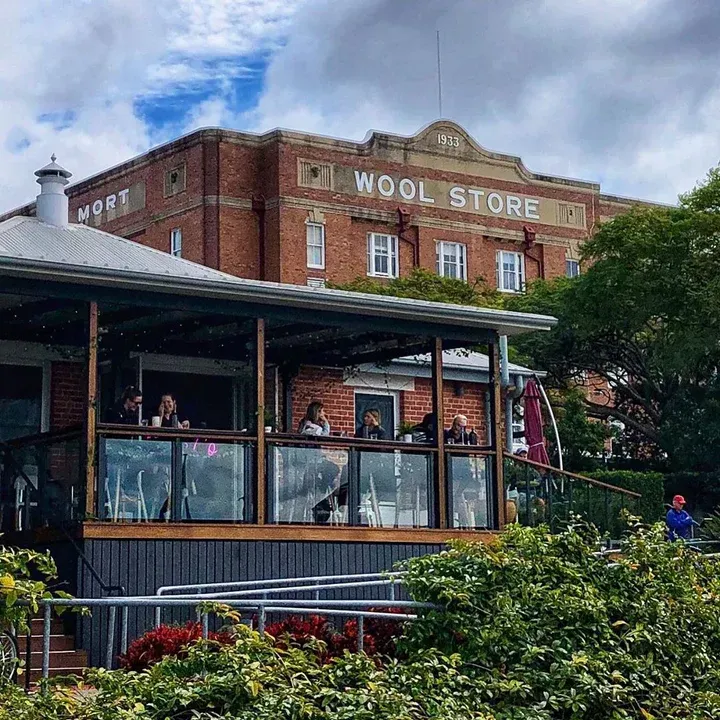Bulimba, QLD 4171: A Vibrant Riverside Suburb
Bulimba is one of Brisbane’s most sought-after suburbs, nestled along the Brisbane River and just 4 kilometres east of the CBD. With its combination of a village-like atmosphere, modern amenities, and leafy streets, Bulimba offers a lifestyle that appeals to families, young professionals, and investors alike. Known for its trendy cafes, riverfront parks, and community feel, Bulimba has long been a favourite for those looking to enjoy the best of suburban and inner-city living.
Location and Accessibility
Bulimba's location on the Brisbane River provides stunning views, riverside walkways, and easy access to the CBD via the CityCat ferry service, which is a popular choice for locals commuting to work. The ferry terminal at Oxford Street connects residents to the city and other riverside suburbs, adding to the convenience of life in Bulimba. Road access is equally good, with multiple routes leading into the city and surrounding areas.
Real Estate and Property Market
Bulimba’s real estate market offers a mix of charming Queenslanders, modern townhouses, and luxury apartments, making it an attractive suburb for a variety of buyers. The median house price in Bulimba is currently around $1.5 million, reflecting its status as a premium riverside suburb. For those looking for apartment living, the median unit price sits at around $700,000.
Bulimba’s leafy streets, proximity to the river, and high-end amenities drive consistent demand, making it a strong performer in Brisbane’s property market. Investors also find Bulimba appealing, as its location and lifestyle ensure high rental demand, particularly from professionals working in the CBD.
Lifestyle and Amenities
- Oxford Street is the heart of Bulimba, lined with cafes, boutique shops, and restaurants. The street exudes a lively, community-focused vibe and is a hub for locals who enjoy weekend brunches, shopping, or catching up over coffee.
In addition to its bustling cafe scene, Bulimba boasts excellent recreational facilities. Bulimba Memorial Park and Vic Lucas Park are local green spaces where families and fitness enthusiasts can enjoy walking trails, picnic spots, and sports facilities. For those who love outdoor activities, Bulimba offers easy access to Bulimba Riverside Walk, a scenic pathway that stretches along the river, perfect for walks, jogging, or cycling.
Schools and Family Appeal
Bulimba is an incredibly family-friendly suburb, with several top-rated schools and childcare facilities. Bulimba State School is a highly regarded primary school, while St Peter and Paul’s School offers excellent private education options. Families also appreciate the close-knit community feel and the abundance of parks and playgrounds throughout the suburb, making it a fantastic place to raise children.
Investment Potential
Bulimba is a high-demand suburb with strong capital growth potential. Its riverside location, proximity to the CBD, and thriving local amenities make it a hotspot for property investors. The suburb consistently shows high rental yields, particularly for houses, with weekly rents averaging around $750. Bulimba’s combination of lifestyle, location, and consistent market demand ensures it remains an excellent choice for both long-term investors and those looking to rent out properties.
Things to Do in Bulimba
Bulimba’s riverside lifestyle offers a variety of activities for residents and visitors alike:
- Oxford Street Cinemas: A local landmark where residents can enjoy the latest movies in a boutique setting.
- CityCat Ferry Rides: A scenic and convenient way to travel to the CBD or explore other riverside suburbs.
- Bulimba Riverside Walk: Perfect for an evening stroll or morning jog, with picturesque views of the river and city skyline.
- Bulimba Golf Club: Located nearby, this is a popular spot for a round of golf or social events.
For those looking for a more leisurely pace, Bulimba offers plenty of opportunities to relax by the river or grab a meal at one of the many riverside cafes and restaurants.
Why Bulimba is a Great Place to Live
Bulimba offers the perfect balance of suburban charm and urban convenience. With its riverside location, top-rated schools, lively cafe scene, and proximity to the CBD, it’s no wonder this suburb continues to attract residents who want a premium lifestyle. Whether you're looking to raise a family, invest, or simply enjoy the community vibe, Bulimba is a suburb that ticks all the boxes.
If you’re considering buying or investing in Bulimba, CAPEX Property is here to help you explore the local market and find the perfect property.
Contact us today to learn more about this vibrant suburb.
Share this with friends!
Latest Property Market Insights











